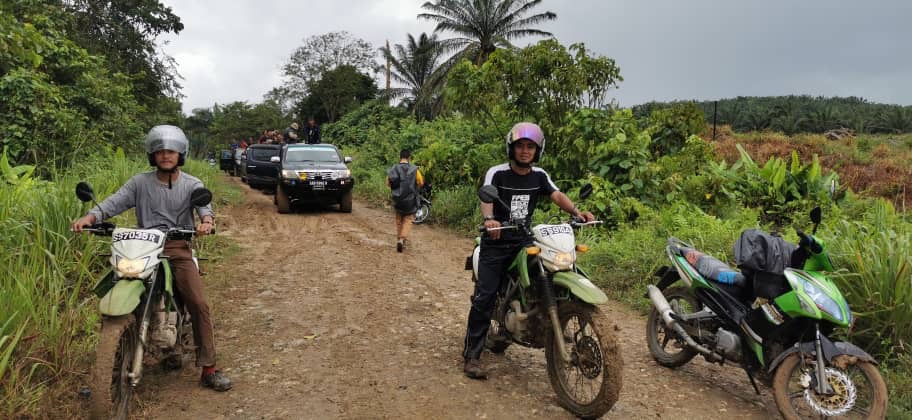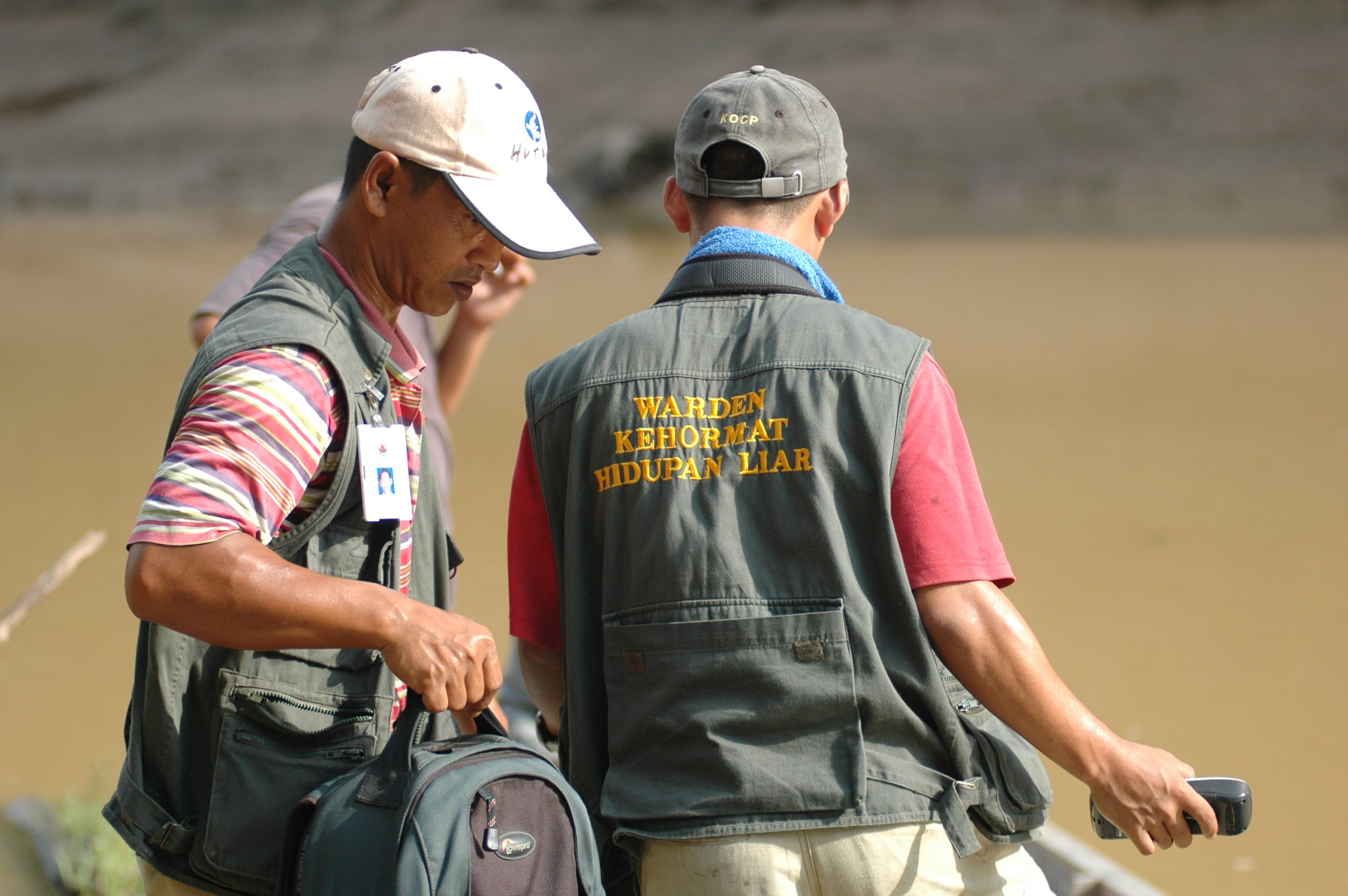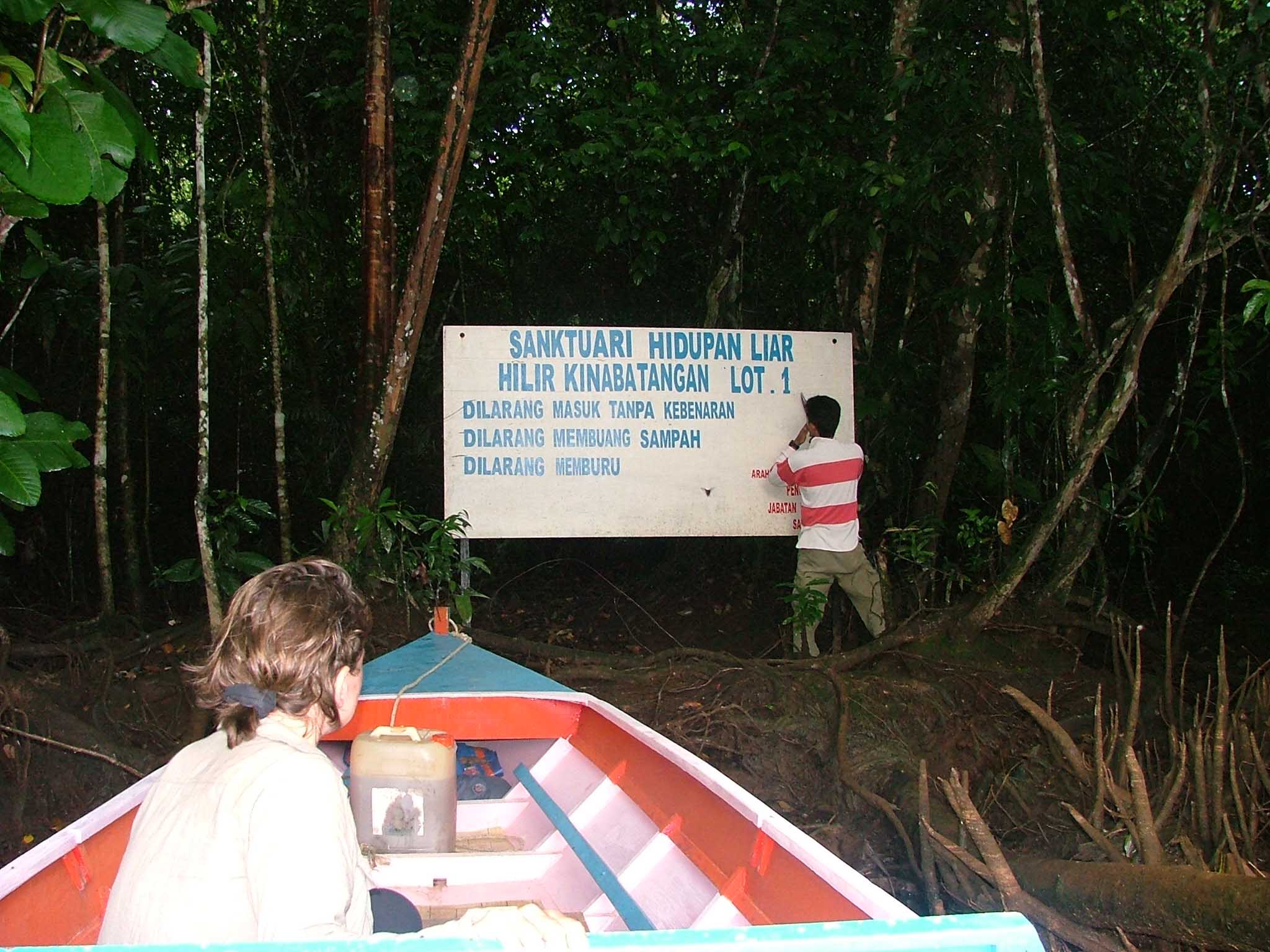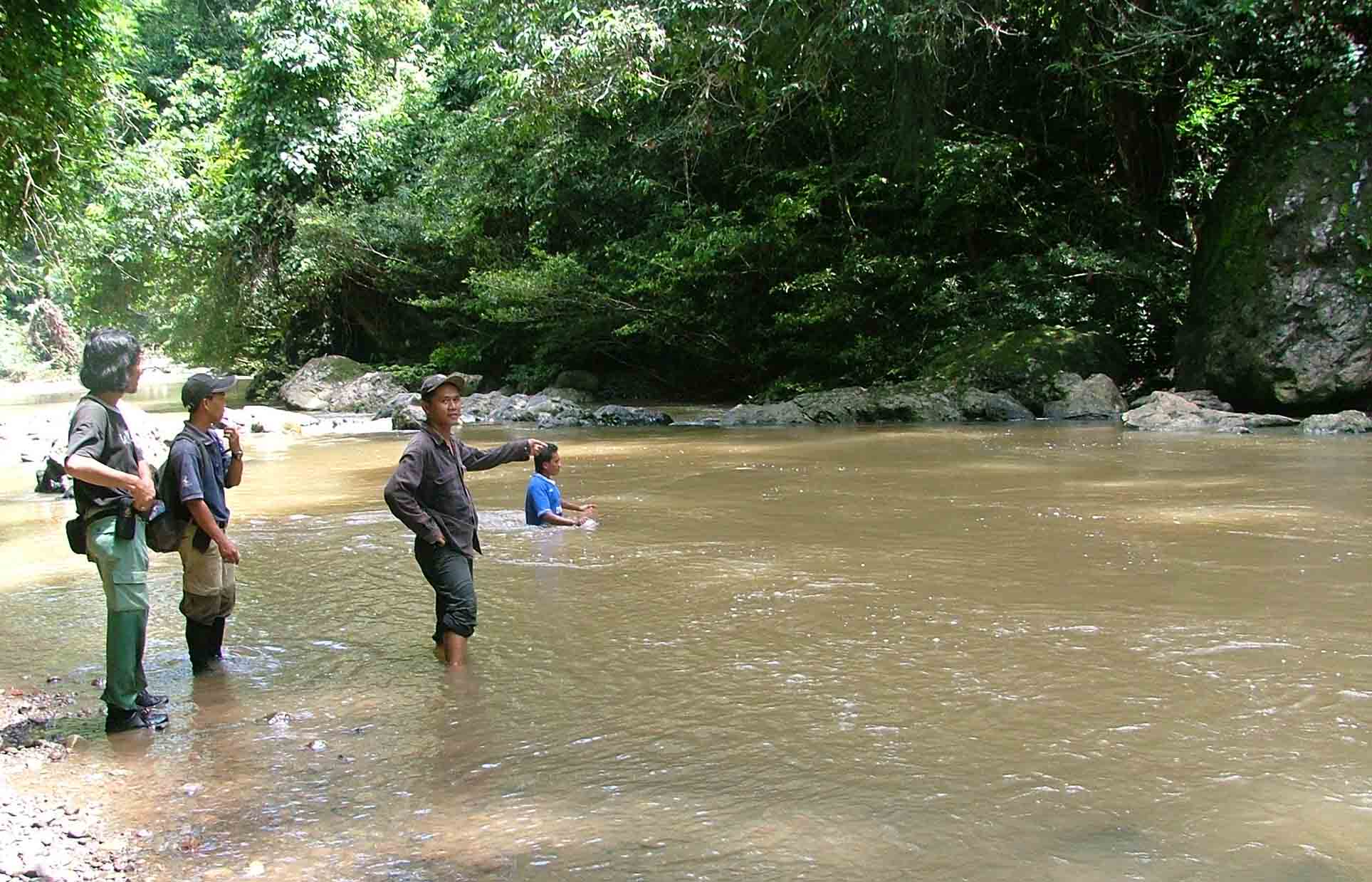
We protect animals and their resources within and outside of Protected Areas from any harm that could result from a close proximity with people.

In 2002, the Sabah Wildlife Department trained and appointed an original group of 20 people from the Kinabatangan community to become “Honorary Wildlife Wardens” or HWWs. HWWs are civilians who are given the same legal powers as rangers from the Sabah Wildlife Department to conserve and manage the natural resources of the State and to apprehend offenders when necessary. They operate on a voluntary basis and are not remunerated by the State for their activities. By acting as additional sets of ears and eyes they assist the Sabah Wildlife Department in all its daily duties.
Today, 24 HUTAN staff from all HUTAN Units are HWWs. To promote efficiency, Berjaya Elahan (WSP team member) is officially in charge of the HUTAN group of Wardens. He is in regular contact with the SWD and the other groups of wardens and coordinates all enforcement activities undertaken by HUTAN. Wardens are on-duty 24 hours a day every single day of the year, which ensures prompt action when cases are reported.
A major function of the Wardens is to make the public aware of the existence of the Lower Kinabatangan Wildlife Sanctuary, the protection status of wildlife living in the region, the laws regarding wildlife and wildlife trade, and the on-going presence of the wardens in the Sanctuary. This presence acts as a deterrent to illegal activities and helps people feel that the area is under surveillance. Awareness is raised through regular discussions and interviews with stakeholders, erecting signboards along the LKWS boundaries, accurately mapping the protected forests, and participating in education events organized by the “HUTAN Environmental Education Program” (HEAP).
Enforcement activities primarily involve regular patrols by boat, car, and on foot. Patrols are conducted throughout the year and typically consist of two or three Wardens. Additional enforcement activities include roadblocks to spot-check for poaching; investigations into various encroachment practices, such as sand dredging, illegal timber extraction; and land degradation from illegal drains, forest conversion, and water pollution.






